Affiliate Disclaimer
Some links in this article are affiliate links. We may earn a small commission if you make a purchase through these links, at no extra cost to you. We only recommend products we find useful to our readersBlood pressure is a key determinant of cardiovascular health, influencing the risk of numerous diseases. Maintaining healthy levels is essential to prevent serious health issues like heart disease, stroke, and kidney damage. Abnormal blood pressure, which measures the force of blood against artery walls, can lead to severe complications if left unmanaged.
For centuries, various civilizations have harnessed the power of herbs and supplements to support cardiovascular health and regulate blood pressure. These natural remedies, central to both traditional and alternative medicine, offer a gentle yet effective approach to maintaining balance within the body.
In this article, we explore nine herbs and supplements renowned for their ability to promote healthy blood pressure, providing a safe and holistic way to support your heart and overall well-being.
Understanding Blood Pressure Regulation
What is Blood Pressure?
Blood pressure is the force exerted by blood on the walls of the arteries as the heart pumps it throughout the body. It is measured using two numbers: systolic pressure (the pressure when the heart beats) and diastolic pressure (the pressure between heartbeats when the heart is at rest). Maintaining ideal blood pressure is crucial for heart health and overall well-being.
How Does Our Body Regulate Blood Pressure?
The body carefully regulates blood pressure to keep it within a healthy range. Several factors affect this balance, including the amount of blood the heart pumps, the flexibility of blood vessels, and the resistance blood faces while flowing through the body.
The autonomic nervous system plays a key role in blood pressure regulation by controlling heart rate and the contraction of blood vessels. In addition, hormones like adrenaline and aldosterone influence blood pressure by constricting blood vessels and adjusting heart rate. The renin-angiotensin-aldosterone system, controlled by the kidneys, helps regulate blood volume, which also affects blood pressure.
What Factors Affect Blood Pressure?
Stress levels, physical activity, and diet significantly influence blood pressure. Poor lifestyle choices can lead to hypertension, a condition associated with an increased risk of heart disease and other cardiovascular issues.
Natural remedies, such as vitamins and herbs, have gained attention for their potential to support blood pressure regulation. Supplements like garlic and hawthorn may help improve blood vessel dilation and blood flow. Omega-3 fatty acids, known for their anti-inflammatory effects, are also thought to benefit heart health.
Herbs and Supplements for Healthy Blood Pressure
1. Garlic:

Garlic has long been celebrated not only for its flavor in cooking but also for its medicinal properties, especially its ability to support healthy blood pressure levels. The key bioactive compound in garlic that is responsible for these benefits is allicin.
Allicin is known for its ability to relax blood vessels, a process called vasodilation, which plays a vital role in lowering blood pressure and promoting overall heart health. It works by influencing the endothelium, the inner lining of blood vessels, helping to improve blood flow and reduce resistance.
One of the ways allicin helps with this process is by stimulating the release of nitric oxide, a compound that further encourages blood vessel dilation. As a result, blood flow improves, and blood pressure can be more easily managed.
Garlic’s benefits go beyond blood pressure regulation. Its antioxidant and anti-inflammatory properties help protect the heart from damage and support overall cardiovascular health. By adding garlic to your diet, you can enjoy these natural benefits in a simple and flavorful way, contributing to better heart health over time.
2. Hawthorn:
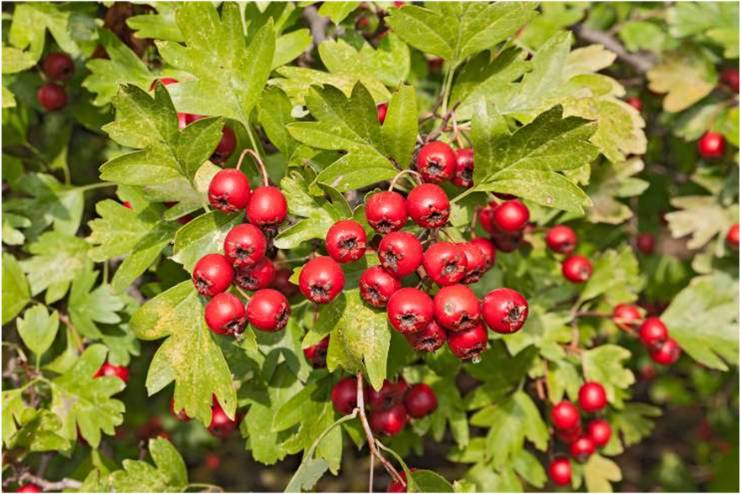
Hawthorn is a remarkable botanical known for its long-standing role in supporting cardiovascular health within traditional medicine. Recent studies have reaffirmed its reputation as a protector of heart health.
This herbal remedy is linked to several cardiovascular benefits, primarily due to its ability to enhance blood vessel dilation, which is crucial for maintaining healthy blood pressure. Additionally, hawthorn stimulates the growth of blood vessels, improving blood flow and bolstering a healthy circulatory system.
In a significant study involving 952 heart failure patients, a standardized hawthorn supplement demonstrated clear benefits. The herb is thought to strengthen heart muscle, stabilize cardiac rhythms, and lower the risk of cardiovascular events.
By bridging traditional knowledge and modern scientific research, hawthorn proves to be a valuable ally in the pursuit of heart health. Whether enjoyed as tea, tincture, or supplement, it stands as a testament to the enduring power of plant-based remedies.
3. Hibiscus:
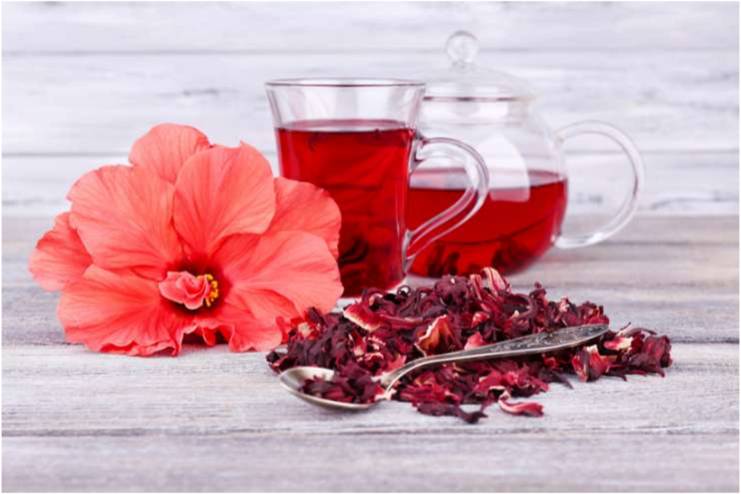
Within the realm of herbal medicines, hibiscus tea has become a highly sought-after beverage for its potential to reduce blood pressure and improve cardiovascular health. This floral infusion has not only tantalized palates but has also drawn notice for its medicinal qualities, especially in controlling hypertension.
The heart health benefits of hibiscus tea are primarily linked to its rich antioxidant content, including anthocyanins and polyphenols. These compounds, responsible for the tea’s vibrant color and distinct flavor, contribute to a range of health advantages. They support vasodilation—an essential process for maintaining healthy blood pressure levels.
The interplay of anthocyanins and polyphenols promotes the relaxation of blood vessels, leading to enhanced blood flow and reduced strain on the circulatory system. As a result, hibiscus tea can be a simple and enjoyable addition to daily wellness routines, providing an effective way to support cardiovascular health.
4. Fish Oil:
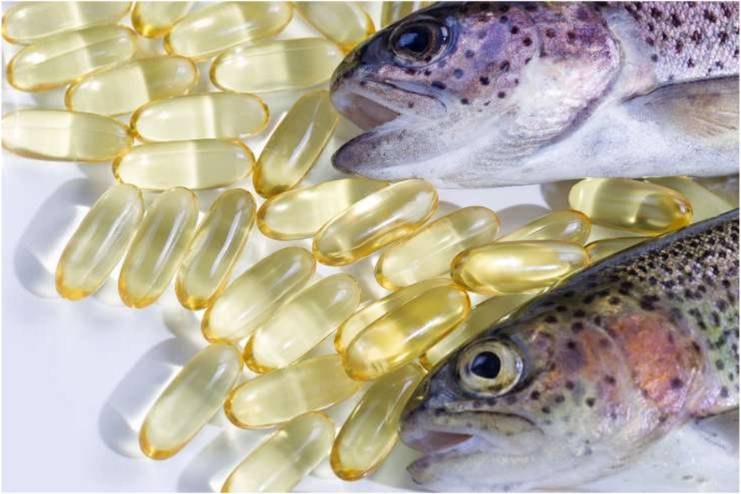
Fish oil is a nutritional gold mine for heart health since it is high in omega-3 fatty acids, notably docosahexaenoic acid (DHA) and eicosapentaenoic acid (EPA).
Fish oil’s unique anti-inflammatory qualities are a key to its cardiovascular magic. The dynamic pair of omega-3 fatty acids, EPA and DHA, reduces your body’s inflammatory response. This ability also benefits the cardiovascular system by promoting better blood vessel function.
Beyond reducing inflammation, these omega-3s have a complex influence on the circulatory system. They help reduce blood clotting by lowering the risk of thrombosis and promoting better blood flow. The complex dance between EPA and DHA acts as a barrier against hypertension by fostering an atmosphere favorable to optimum blood pressure.
5. Beetroot:

Beetroot is a colorful ally in natural therapies for heart health. This root vegetable has a high concentration of nitrates, substances known to increase the formation of nitric oxide, a vital catalyst for promoting ideal blood flow and possible blood pressure reduction.
Beetroot’s power comes from its capacity to function as a nitric oxide enhancer. When consumed, the body converts nitrates from beetroot into nitric oxide, a compound known for its vasodilatory effects. Widening blood vessels as a result of this physiological miracle improves circulation and reduces the strain on your heart.
Whether consumed as a juice or cooked vegetable, including beetroot in the diet is a natural and comprehensive way to promote cardiovascular health. Beyond its possible ability to decrease blood pressure, beetroot has a high vitamin, mineral, and antioxidant content, which enhances general health.
6. Magnesium:

Magnesium plays a subtle but vital role in orchestrating cardiovascular health. This essential mineral calms blood vessels and strengthens cardiovascular function, which is crucial in blood pressure regulation.
Magnesium has an exceptional capacity to relax blood vessels, which is essential for preserving normal blood pressure levels. It has a soothing impact by influencing vascular tone, which creates an atmosphere that allows blood vessels to dilate and constrict as needed gracefully.
The food world has become a true goldmine for those seeking to reap the cardiovascular benefits of magnesium. Green leafy vegetables, including spinach and kale, are rich in this essential mineral. Nuts and seeds are a great source of magnesium, have high nutritional content, and add crunch to salads and meals. The magnesium symphony is also enhanced by whole grains, made available by healthful eating choices.
7. Potassium:
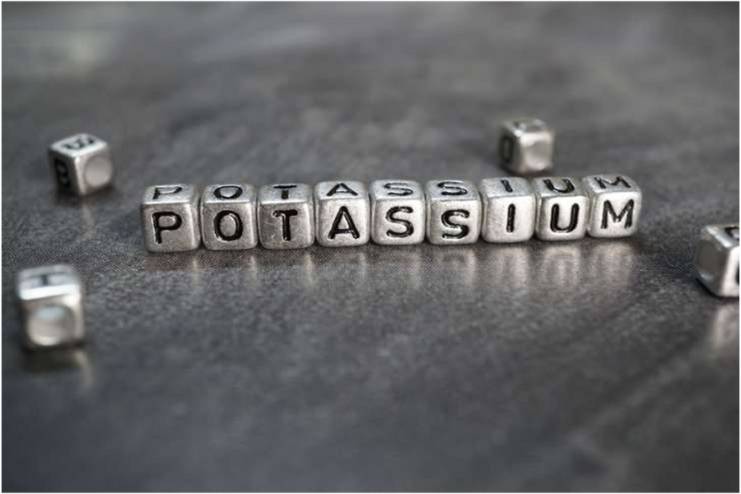
Potassium orchestrates a healthy equilibrium in cardiovascular health beyond its role as a mineral. Potassium-rich foods, like bananas, oranges, and spinach, are abundant in nature and help maintain cardiovascular balance.
Potassium balances sodium, which raises blood pressure. Potassium is also a natural antagonist to sodium, promoting fluid balance in cells and tissues. Bananas are potassium powerhouses and a tasty method to get this mineral. Oranges are citrusy and high in vitamin C and potassium. Spinach, a nutritional powerhouse, is rich in this mineral.
Proper sodium-potassium ratios are essential for blood pressure regulation and cardiovascular health. These two minerals delicately affect fluid balance, nerve impulses, and muscle contractions, creating the complicated dance of heart health.
8. Coenzyme Q10 (CoQ10):
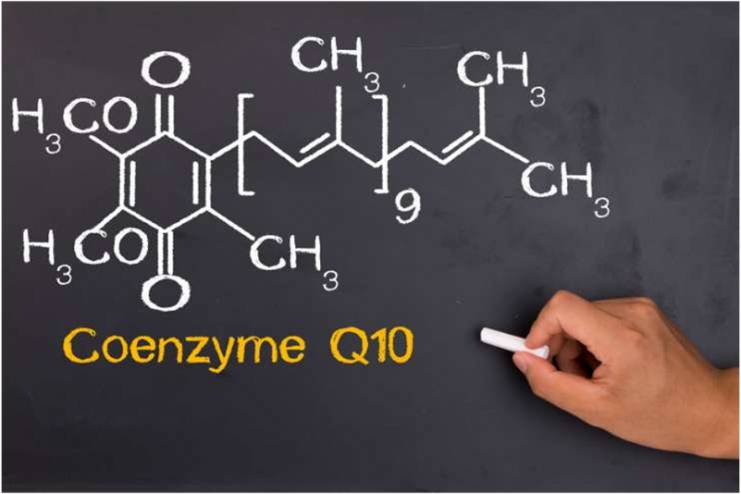
Coenzyme Q10 (CoQ10) plays a vital role in maintaining cellular health, particularly in the heart. As a powerful antioxidant, it helps protect cells from oxidative stress, which can damage heart tissue over time. By neutralizing free radicals, CoQ10 supports cardiovascular function and strengthens the heart.
One of CoQ10’s key benefits is its ability to enhance cellular energy production. It supports mitochondrial function, which improves energy efficiency in the heart. This can help maintain healthy blood pressure by promoting the vitality of heart cells. In essence, CoQ10 acts as a protective shield, reducing oxidative stress and supporting the heart’s resilience and blood pressure regulation.
As we age, CoQ10 levels naturally decline, and those with heart disease or taking statins may experience even lower levels. While foods like meat, fish, and nuts contain CoQ10, they don’t provide sufficient amounts to boost levels significantly. Supplementing with CoQ10 in capsules, chewables, or IV treatments can help support heart health, prevent heart conditions, and even aid in managing migraine headaches.
9. Cinnamon:

Cinnamon is a tasty partner in the quest for holistic well-being. It is known for its warm, inviting aroma and potential cardiovascular health benefits. This ancient spice has bioactive components – cinnamaldehyde, cinnamate, and cinnamic acid – that may help regulate blood pressure.
Cinnamon’s medicinal properties are thought to be due to these chemicals, promising natural blood pressure management.
Cinnamon’s ability to dilate blood vessels is fascinating. This unique property indicates that cinnamon may relax blood arteries, enhancing blood flow and promoting vasodilation. Vasodilation plays a crucial role in cardiovascular health, suggesting its potential as a treatment for high blood pressure.
Conclusion
Exploring herbs and supplements for maintaining healthy blood pressure reveals various natural options with heart health benefits. Foods and spices such as garlic, hawthorn, hibiscus, fish oil, beetroot, magnesium, potassium, coenzyme Q10, and cinnamon can support cardiovascular health. These natural treatments, well-known for their anti-inflammatory and vasodilatory qualities, provide a comprehensive strategy for controlling blood pressure.
As we conclude our exploration of nature’s pharmacy, it’s essential to highlight the significance of personalized treatment. While incorporating these herbs and supplements may offer potential benefits, it is crucial to approach them with care. Consulting healthcare professionals ensures tailored advice that considers individual medical conditions and current medications.
References
- https://www.cdc.gov/bloodpressure/about.htm
- https://newsinhealth.nih.gov/2016/01/blood-pressure-matters
- https://www.healthline.com/nutrition/11-proven-health-benefits-of-garlic
- https://healthmatch.io/high-blood-pressure/taking-garlic-for-high-blood-pressure#how-does-garlic-treat-your-high-blood-pressure
- https://www.mountsinai.org/health-library/herb/hawthorn
- https://www.ncbi.nlm.nih.gov/pmc/articles/PMC3249900/
- https://www.healthline.com/nutrition/hibiscus-tea-benefits
- https://www.webmd.com/diet/hibiscus-tea-is-it-good-for-you
- https://www.ncbi.nlm.nih.gov/pmc/articles/PMC8767101/
- https://www.mayoclinic.org/diseases-conditions/heart-disease/in-depth/omega-3/art-20045614
- https://www.ncbi.nlm.nih.gov/pmc/articles/PMC8965354/
- https://www.webmd.com/food-recipes/features/truth-about-beetroot-juice
- https://pubmed.ncbi.nlm.nih.gov/16762312/
- https://ods.od.nih.gov/factsheets/Magnesium-HealthProfessional/
- https://www.heart.org/en/health-topics/high-blood-pressure/changes-you-can-make-to-manage-high-blood-pressure/how-potassium-can-help-control-high-blood-pressure
- https://www.cdc.gov/salt/potassium.htm
- https://www.sciencedirect.com/science/article/abs/pii/S0163725809001429
- https://pubmed.ncbi.nlm.nih.gov/19638284/
- https://www.verywellhealth.com/can-cinnamon-lower-blood-pressure-4126313
In this Article



















